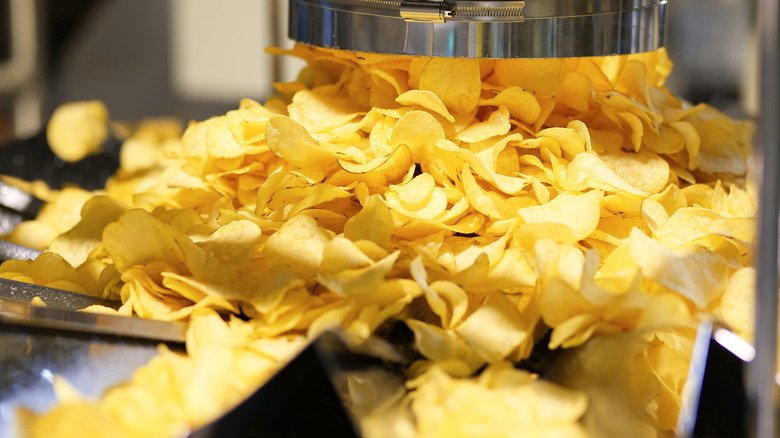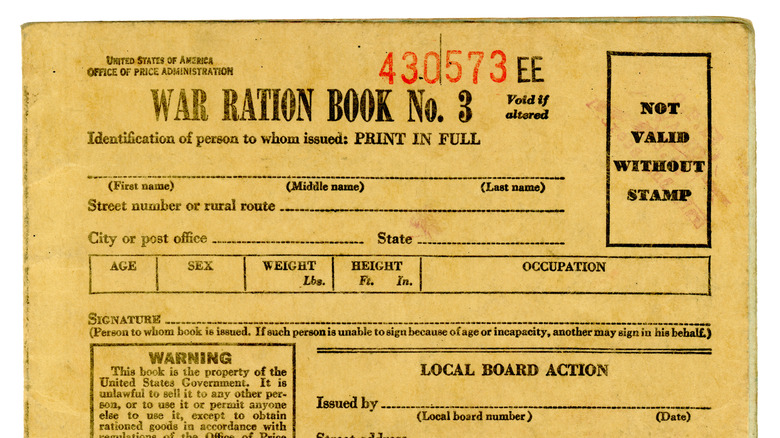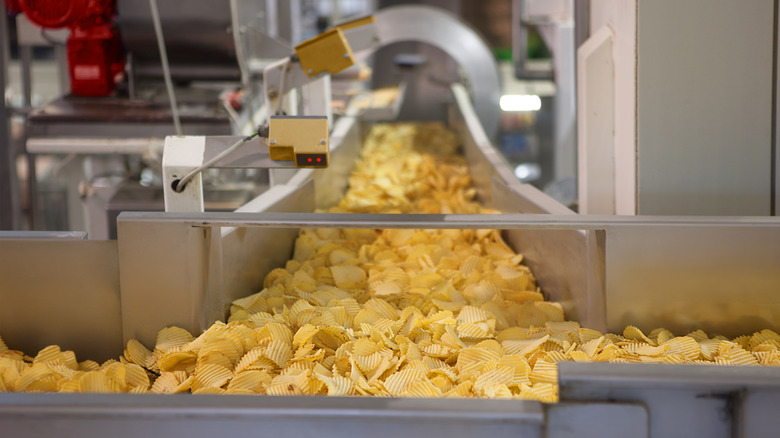Why Potato Chip Production Was Once Shut Down
It is hard to imagine that there could've been a time when potato chips were not available on the shelves of every grocery store, gas station, convenience store, and deli in the country. Americans love potato chips. According to Statista, around 35 million Americans consumed 16 or more bags of potato chips in 2020. However, if you were to transport yourself back about eight decades, to the start of America's involvement in the Second World War, you would find yourself in a time when potato chip production was temporarily shut down.
During the war, there was a general consensus that those on the home front needed to do everything possible to support and supply the troops in the European and Pacific theaters. That meant recycling scrap metal, rubber, food fats, and paper for the production of weapons, but it also meant food rationing.
Food production at the time was mechanized, but not nearly as heavily as it is today. Crop farmers, victory gardens, and home canning were therefore relied upon to produce a decent amount of America's food. However, there were still certain food products, ones that could not be produced at home, that were deemed frivolous and nonessential. Potato chips were one of them.
A nonessential food
Long before COVID-19 ignited debate over terms like "essential" and "nonessential," government officials during World War II were determining what was to be labeled essential and nonessential in terms of food. As supplies were crucial to the war effort, the government began a strict rationing policy on products like sugar, coffee, bacon, and chocolate. Restaurants introduced meatless menus not because it was in vogue but out of necessity, and newspapers were full of helpful tips on how to make the most out of very little.
So where did this leave potato chips? Potatoes were, and are, considered a highly important crop during wartime. The amount of potatoes and cooking oils required to make chips is likely what caused the government to deem them a nonessential food. The production of the beloved snack halted completely, baffling manufacturers and causing a certain amount of upset with the already exhausted public.
It's not clear what exactly the government gained from the production halt in terms of potatoes and cooking oil. What is known, however, is that producers were less than pleased with the government's mandate, and they were about to make their displeasure known.
Petitions to the War Production Board
The War Production Board (WPB) was a department established by Executive Order in 1942. It was granted supreme authority over materials and industrial production programs that benefitted the war effort. So, though it may not have been to everyone's liking, the WPB did in fact have the wartime authority to halt the nationwide production of potato chips, as it did not see how chips were at all in line with its mission.
As you can imagine, since Americans were being forced to sacrifice imported goods like sugar and coffee, banning potato chips, which came from a thriving domestic crop, was one step too far. Potato chip manufacturers, therefore, went to Washington and petitioned the WPB for a return to production. The lobbying efforts garnered the support of all the nation's potato chip producers and essentially strong-armed the WPB into removing the designation.
After the WPB lifted the label, potato chip sales and production absolutely soared. As chocolate and sugar were still heavily rationed, people were not getting as many candy bars or other sweet treats. So, since potato chips were again available, they sold incredibly well. And, as is clear from our modern consumption, the national taste for the snack only continued to grow after the war, making the momentary ban just a blip on the radar of the history of this beloved and flavorful snack.


